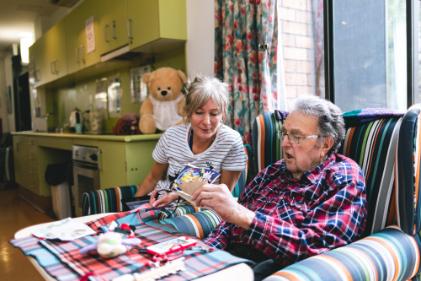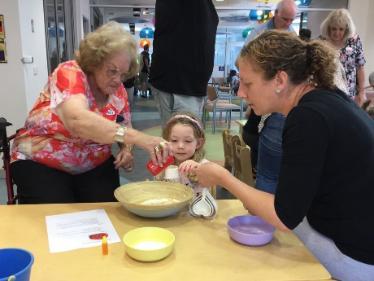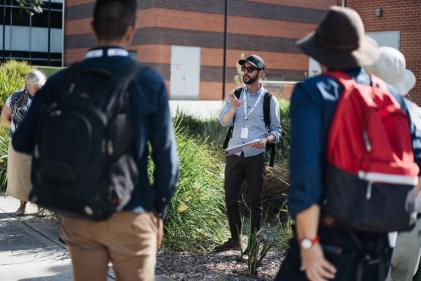Dementia is a global challenge that requires interdisciplinary thinking, collaboration and innovation to improve the lives of people living with dementia. With no effective medical treatments or cure in sight, there is increasing urgency to support the social health and wellbeing of people living with dementia and those at risk of developing it.
[Speaker: Associate Professor Lynne Phillipson]: Currently there are 500,000 people living with Dementia in Australia and with our aging population by 2050 that'll be nearly a million people.
Our project Connections for Life with Dementia is about overcoming the barriers that exist for people as they age and as they live with conditions like Dementia to make those connections that will help them to live a good life.
[Speaker: Dr Chris Brennan-Horley]: So our research is conducting audits and interviews with people living with Dementia, both in their apartments to find out about the elements that make their apartments manageable, meaningful and comprehensible, and also taking them outside to walk around and doing mapping activities to find out which elements of the physical environment are helping them or impeding them from connecting with their local community.
Our external partners in this project are the members of the community themselves. So people living with Dementia and people at risk of Dementia. And we'll be looking later on in the research to reach out to other partners within local government like architecture firms and that kind of thing to try and affect change in how we design buildings and environments.
[Speaker: Associate Professor Jessica Mantei]: The main goal of our research is to create programs that look to improve the lives of other people, young people, young children, parents and older people and we bring those together in an intergenerational playgroup so that they can interact with each other and have opportunities for social interactions.
So one of the ways we're working in this project is to engage the ways of well-being as part of a framework that we work with to design our intergenerational play groups. So we're thinking about the ways that people are aware, of the ways that they're active, the ways that they're able to help other people, the ways that they can take part in the activities that we're doing.
[Speaker: Dr Louisa Smith]: In Australia we have a tendency of putting people who need the most support on the very edges of society. And for people with disabilities and older people that has historically meant placing them in institutions that are right on the edges of communities.
This project really aims to put people with Dementia and people in residential aged care with Dementia at heart of communities and to see residential aged care as a community hub.
[Speaker: Dennis Froster]: Well my role within the connections project is to provide my lived experience and the light that shines on what the projects are attempting to do and the methodologies and practicalities of doing things.
It's important to include the voice of people with Dementia and their immediate care partners in any of the research because so often in the past the research has been very much disjointed from what we were considered to be the real world.
[Speaker: Linda Henderson]: My role on this project is to contribute as someone who supports someone living with Dementia. In her case it's young onset Dementia, a rare form. And I think it's important for research, if it's to be action research to be based on the lived experience of the people about whom others are researching. And basically for us within the Dementia community, it's really nothing about us without all of us.
[Speaker: Associate Professor Lynne Phillipson]: In our project we will know we're successful if we increase the opportunities for people as they age and as they are living with conditions like Dementia to stay connected. That will mean there'll be more opportunities in our communities for people to be socially connected.
We will begin to design our cities and our communities so that the outdoor spaces and the buildings actually promote connectedness and involvement for our older population. We will also build residential aged-care facilities in a way that sees them as central to the communities that we live in rather than as places where people become more segregated.
Success in our project also means that people, regardless of their discipline or their background, see the challenges of an aging population is something that they can contribute a solution to. That means that architects designers, town planners and providers of aged care services as well as community members all see aging as part of their responsibility and something that they can contribute solutions to.
[Music]















